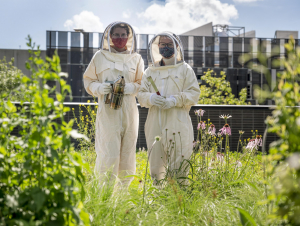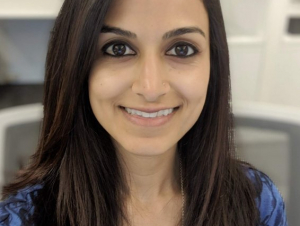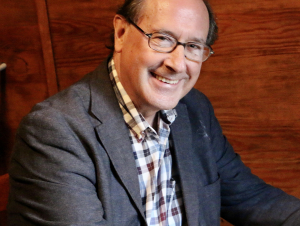To request a media interview, please reach out to experts using the faculty directories for each of our six schools, or contact Jess Hunt-Ralston, College of Sciences communications director. A list of faculty experts is also available to journalists upon request.
Latest News
Georgia Tech’s Urban Honey Bee Project is a research program focused on the impact of urban habitats on honey bees.
The winner of the first Mark Borodovsky Prize in the College of Sciences is Bioinformatics Ph.D. student Devika Singh, who also completed her B.S. and M.S. at Georgia Tech. The award honors the top student in the Bioinformatics Interdiscipinary Graduate Program at Georgia Tech.
Georgia Tech faculty across a number of disciplines are working on projects in ocean science and engineering aimed at identifying, projecting, mitigating, and even reversing the effects of climate change. Many of these researchers are doing so in conjunction with Georgia Tech’s Ocean Science and Engineering program and with Ocean Visions, an international research and solutions consortium.
Georgia Tech faculty across a number of disciplines are working on projects in ocean science and engineering aimed at identifying, projecting, mitigating, and even reversing the effects of climate change. Many of these researchers are doing so in conjunction with Georgia Tech’s Ocean Science and Engineering program and with Ocean Visions, an international research and solutions consortium.
Despite a long-held hypothesis that oxygen determined the size of large, complex multicellular organisms during the early Earth, researchers have found the early rise in global oxygen, should have, “in fact strongly constrain[ed] the evolution of macroscopic multicellularity, rather than selecting for larger and more complex organisms.”
Schutz, an adjunct professor in the School of Physics, member of the Center for Relativistic Astrophysics, professor at Cardiff University, and former director and founding director of the Max Planck Institute for Gravitational Physics (Albert Einstein Institute), is the recipient of top honors from the world's oldest independent scientific academy. Schutz is elected for seminal contributions to relativistic astrophysics, including driving the field of gravitational wave searches — helping lead to their direct detection in 2015.







